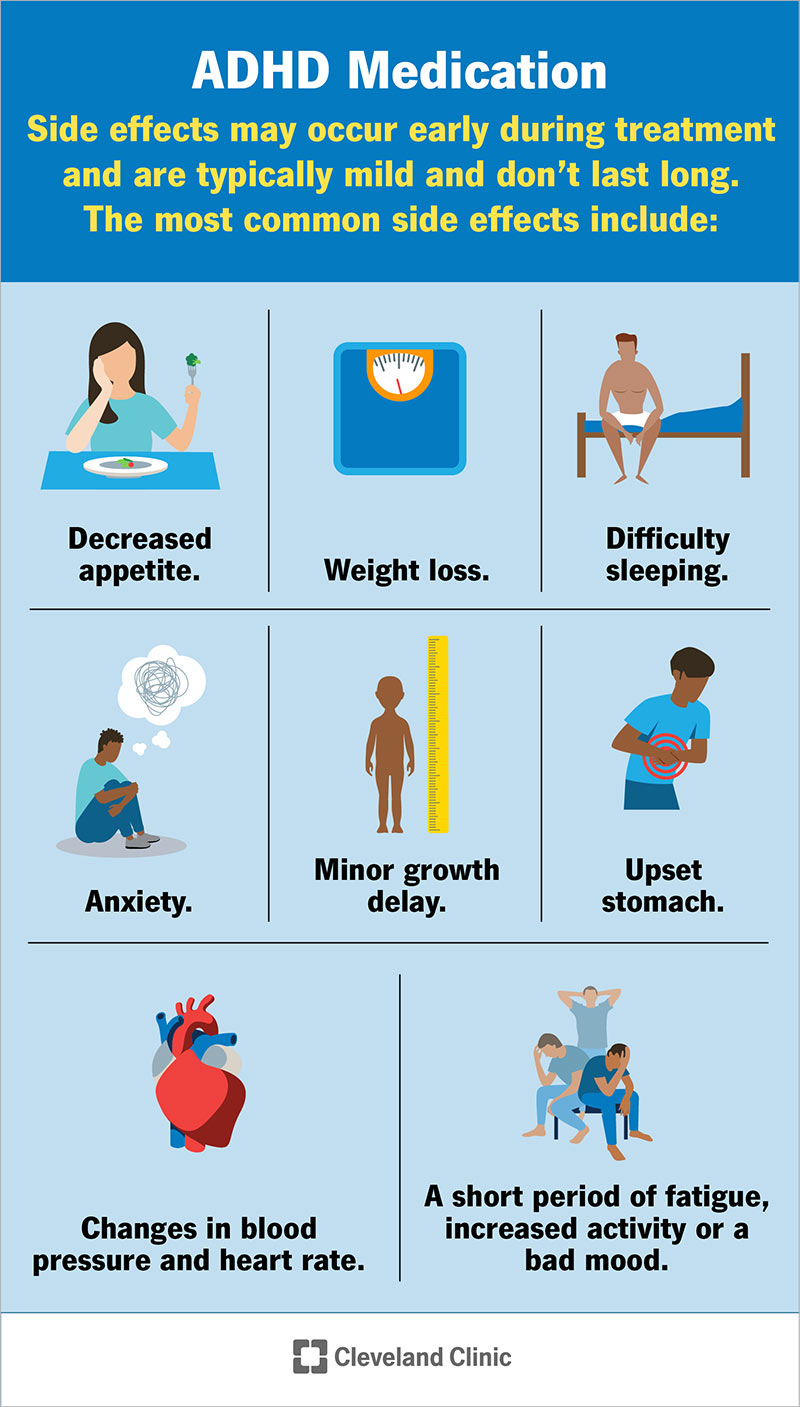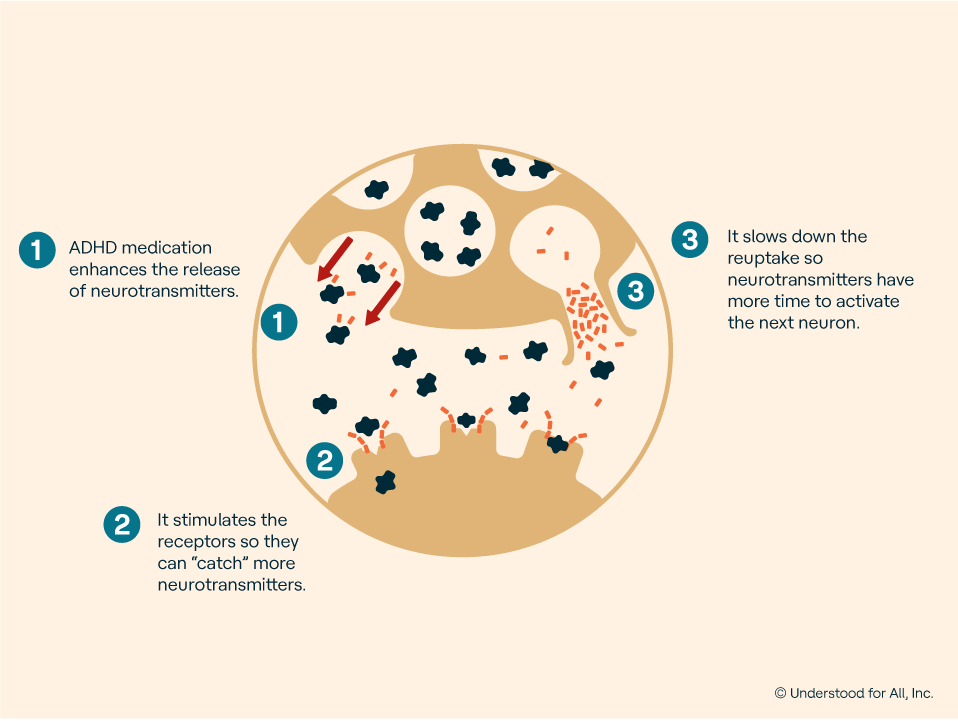Medication Management Programs for Safe Treatment Plans
Medication Management Programs for Safe Treatment Plans
Blog Article
The Advantages of Individualized ADHD Therapy Prepare For Better End Results
The implementation of personalized ADHD therapy plans has arised as a critical approach in boosting therapeutic outcomes for individuals influenced by this problem. By identifying the unique manifestations of ADHD in everyone, these customized treatments advertise higher interaction and motivation, inevitably resulting in much more efficient coping techniques. This customized technique not only addresses academic and job-related challenges however likewise fosters enhanced social partnerships and total lifestyle. The real extent of these advantages increases vital questions about the certain components that add to lasting success and exactly how they can be optimized for varied populations.
Recognizing ADHD Irregularity
Although Attention-Deficit/Hyperactivity Problem (ADHD) is typically viewed as a particular condition, its symptoms can differ substantially amongst people. Gender distinctions additionally play a function, as men are a lot more often diagnosed with ADHD and often show extra overt symptoms, whereas women may present with much less obvious inattentiveness.
Moreover, individuals with ADHD might experience a spectrum of psychological and behavioral obstacles, such as anxiousness or oppositional defiance, that can complicate diagnosis and therapy. The interaction of these factors can bring about varied experiences of ADHD, necessitating a nuanced understanding of the disorder. It is additionally worth keeping in mind that ADHD can provide differently across various cultural contexts, influencing exactly how signs are acknowledged and attended to. This understanding underscores the significance of identifying ADHD as a complex condition, which asks for individualized approaches to therapy that think about the special needs and experiences of each individual.
Key Components of Customization
Personalized ADHD therapy strategies are based in numerous crucial components that ensure effective monitoring of the disorder. Initially, an extensive analysis is crucial, entailing standardized rating scales, meetings, and behavioral observations. This complete evaluation allows clinicians to understand the individual's unique symptoms, staminas, and difficulties.
Second, the involvement of several stakeholders, including moms and dads, instructors, and the person, adds to an alternative view of the individual's demands. Collaboration promotes a helpful environment that can adapt to the individual's context and way of life.
Third, therapy strategies ought to be flexible and adaptable, enabling modifications based upon continuous comments and the person's evolving demands. This adaptability enables the integration of various therapeutic techniques, such as behavioral treatments, psychoeducation, and medication management.
Additionally, cultural and contextual factors need to be considered. Acknowledging the individual's history, values, and choices ensures that the treatment is relevant and respectful.
Lastly, routine follow-ups and analyses are necessary to keep track of progress and make needed changes. By focusing on these vital parts, individualized ADHD therapy strategies can considerably boost the effectiveness of treatments, leading to improved end results for people with ADHD.
Boosted Engagement and Inspiration
To successfully advertise improved engagement and motivation in people with ADHD, it is necessary to integrate techniques that reverberate with their rate of interests and strengths. Individualized therapy plans that align with an individual's passions can result in raised participation in healing activities, fostering a feeling of possession and interest nova counseling for the process.
Utilizing interactive and innovative approaches can additionally substantially enhance motivation. Including gamification elements or real-world applications of skills can make jobs a lot more enticing and appropriate. This not just captures focus however also enhances learning via pleasurable experiences.
In addition, establishing achievable and significant goals tailored to the individual can mdd dsm 5 reinforce inspiration. When people see their progression in the direction of personally substantial purposes, they are most likely to remain involved. Regular responses and acknowledgment of achievements can better sustain motivation, developing a favorable feedback loop that motivates continued effort.
Last but not least, cultivating a helpful atmosphere where people really feel comprehended and valued can considerably impact their involvement degrees. When treatment plans are established collaboratively, integrating input from the individual, they are more probable to feel spent in their trip, inevitably bring about boosted results in handling ADHD.
Improved Coping Strategies
Establishing enhanced dealing techniques is critical for individuals with ADHD, as it equips them with efficient devices to browse everyday obstacles. A personalized treatment strategy allows for the recognition of details coping mechanisms tailored to the person's distinct requirements and conditions - ADHD treatment. Strategies such as mindfulness, time administration abilities, and business strategies can be integrated into daily regimens, fostering a sense of control and minimizing anxiety
Mindfulness techniques, including meditation and deep-breathing workouts, assistance people with ADHD concentrate their interest and manage their emotions. Time monitoring approaches, such as utilizing timers or breaking tasks right into ivor browne smaller sized, convenient actions, can alleviate sensations of bewilder. In addition, business devices like organizers and checklists can improve performance and responsibility.
Long-term Positive Outcomes
Implementing tailored ADHD therapy plans can result in considerable long-term positive results for individuals. These tailored strategies, which consider distinct signs, preferences, and life scenarios, help with more reliable administration of ADHD symptoms in time. By focusing on the details requirements of the person, these strategies enhance adherence to therapy protocols and foster greater engagement in healing tasks.

Furthermore, individualized treatment plans can significantly minimize the threat of comorbid problems, such as anxiety and anxiety, which are usually related to ADHD. Early intervention and regular assistance aid individuals construct resilience and coping strategies, promoting total psychological wellness.
Eventually, the long-term favorable outcomes of tailored ADHD therapy prepares not just enhance the high quality of life for people but also contribute to their total well-being and success in various life domain names. This all natural approach highlights the relevance of personalized treatment in managing ADHD efficiently.
Conclusion

Report this page